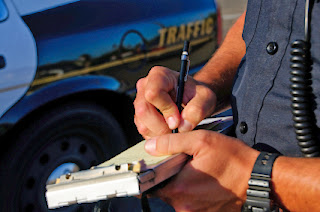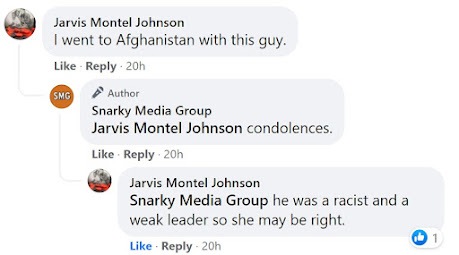Genuine "Officer's Discretion"
Publisher's note:
A GENUINE "OFFICER'S DISCRETION": a couple of weeks ago I witnessed one of the good Little Rock River Market cops exercise true "officer's discretion" (as opposed to the preferential treatment of Traffic Judge Fleming during a recent head-on collision). I certainly would've given that young lady a DWI just for attempting to drive drunk. This cop made sure that the drunk's car was in park and called her father (a local preacher). Dad picked her up, brother drove the car and everyone got an earful for about ten minutes prior to their respective departures. That was true officer's discretion at play, so let's not dilute a "good" thing with Good 'Ol Boy bullcrap that amounts to nothing but blatant cronyism LRPD, indeed.
Proper use of discretion is probably the most important measure of a police officer or department.
A police officer working the street would be like a dog chasing its tail if that officer strictly enforced every violation observed to the “letter of the law.” Furthermore, that officer probably wouldn't have time to answer calls for service.
Looking back, when I first entered the field of law enforcement, I was naive. I thought it would be easy. Things should be black or white, legal or illegal, and I would act accordingly.
It didn't take long to realize few things involved with human behavior are black or white. The best cops operate in the gray areas of human existence. The gray area is where we as citizens need the police to operate with confidence and good judgment.
Discretion can only be used on minor crimes. Felony crimes are black and white. If you commit a felony, you should get locked up. Many times when a suspect is caught, booked and spends a night or two in jail, it may be the only time that person will spend behind bars.
Prosecutors and trial courts are overburdened and necessarily must plea bargain most cases. The jails are too crowded, as are the state prisons. It all boils down to funding. The threats to society get locked up, and the nuisance criminals get a pass until they graduate into more serious crimes or become a nuisance that cannot be ignored. This is another level of discretion in the system.
One of my peers once said, “We give the citizens the lack of policing they demand.” For instance, Ann Arbor is famous for its original $5 fine for possession of marijuana. The fine was later increased to $25, which is ironically still $50 less than the fine for a minor in possession of tobacco. Clearly marijuana possession in small quantities was something citizens, through their city council, viewed as harmless and no big deal.
Now put yourself in the shoes of an officer who pulls a motorist over for a minor traffic violation and sees a few burnt marijuana cigarettes - “roaches” - in the ashtray. Technically, if we were enforcing the letter of the law, those should be seized, logged into property, and a ticket issued. Once the ticket was issued, the officer would at some point in the shift drive to the station and log the roaches into property.
So this $25 ticket takes an officer off the street for 20-30 minutes. Furthermore, it will take the property officer and clerk’s time to catalog, store, inventory and later destroy the contraband. Is it perhaps a better use of the officer’s time to check out the driver and passengers, their demeanor and sobriety, the car (stolen or not) and “overlook” the roaches?
Should an officer write a traffic ticket to every driver pulled over for a traffic violation? Without discretion, this would have to happen. I can tell you from experience some people need tickets and other people deserve warnings, with a little lecture on traffic safety attached.
I also believe an officer should either issue a ticket or give a traffic safety lecture, but not both. If you get a “break,” you will have to endure a short lecture why what you did was so hazardous. If you get a ticket, writing the check to the court should suffice as a reminder to drive more carefully. You don’t need a lecture.
The criminal justice system is far from perfect, but it works. Just like our government, there are checks and balances in the system. Patrol officers enforce the laws based on general directions given to them by their bosses, the prosecutor’s office and the courts. All of these entities represent the citizens who elect and fund the system.
Some jurisdictions demand strict enforcement of the law. Other jurisdictions are less strict. The police should mirror the will of the people they serve.
Lock it up, don't leave it unattended, be aware and watch out for your neighbor.
Rich Kinsey is a retired Ann Arbor police detective sergeant who now blogs about crime and safety for AnnArbor.com.



Comments
Post a Comment
You are welcome to email your tips, corrections and/or comments to: aidcommission@gmail.com please indicate if you wish to remain anonymous or otherwise. We will post your comment without edit.